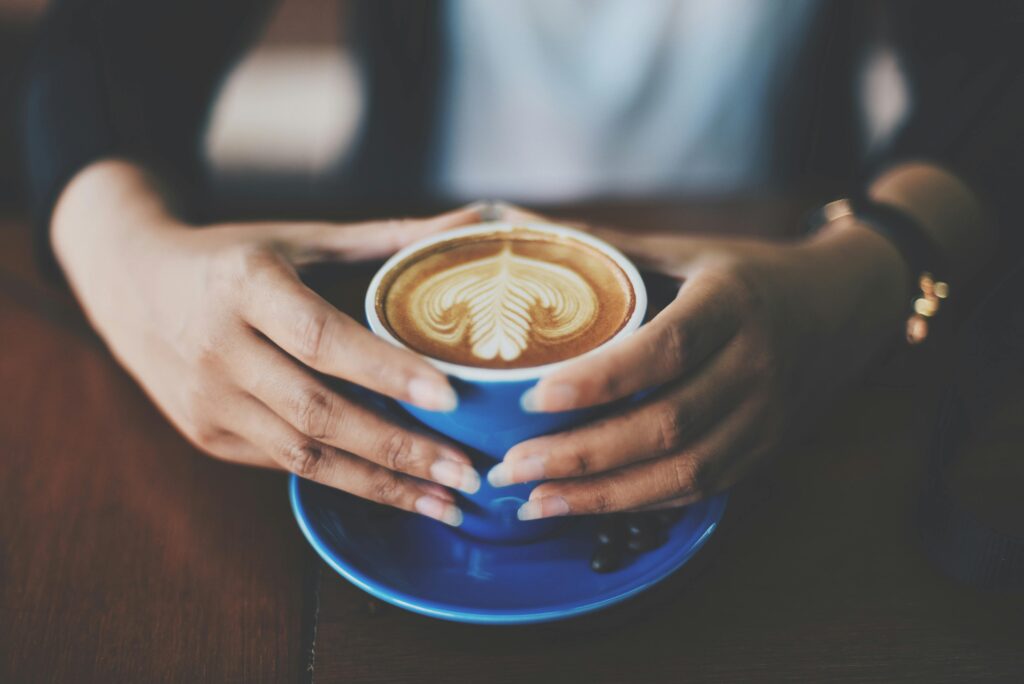More Espresso, Less Depresso: Is It True?
Ah, coffee—the elixir of life for many of us.
Whether you’re burning the midnight oil, chasing deadlines, or just being too groggy to function, a hit of espresso has a way of making everything feel just a little more bearable.
But then there’s that phrase you see plastered on quirky mugs and Instagram captions—”More espresso, less depresso.”
It’s catchy, sure, but is there any truth to this coffee-fueled claim?
Can espresso really chase away the blues, or is it just a clever marketing trope?
Buckle up (or brew a cup), because we’re breaking down the science, myths, and real-life stories behind this bold statement.
What Does “More Espresso, Less Depresso” Even Mean?
The phrase “more espresso, less depresso” humorously suggests that coffee, particularly espresso, can help lift feelings of sadness or low mood. While caffeine does act as a stimulant, boosting energy and alertness in the short term, its effects on mood are more complex.
Medically speaking, it’s important to highlight that while coffee can provide a temporary lift.
However, it is not a treatment for depression or other mental health conditions. The rush of energy caffeine offers may mask symptoms temporarily, but it doesn’t address the underlying causes of emotional distress. In fact, over-reliance on stimulants like caffeine can sometimes exacerbate anxiety or interrupt sleep, which are critical factors in managing mental health.
So while enjoying a cup of coffee can be part of a healthy routine, it’s important to recognize that true emotional well-being requires deeper attention—whether through therapy, lifestyle adjustments, or other evidence-based interventions.
Coffee can boost a moment, but it’s not a replacement for meaningful mental health care.
Understanding the Science Behind Espresso and Mood
Caffeine is a stimulant, and here’s how it works:
- Blocks Adenosine: Adenosine is a chemical in your brain that makes you feel sleepy. Caffeine binds to adenosine receptors, essentially blocking them and keeping you alert.
- Boosts Dopamine: Caffeine also increases dopamine signaling in the brain, which is linked to feelings of pleasure and reward. Think of it as giving your brain a high-five.
- Improves Focus: It ramps up the release of adrenaline, giving you that laser-focused, unstoppable feeling.
But here’s where it gets tricky. While a mild caffeine buzz might give your mood a temporary lift, overuse can actually backfire.
According to Harvard Medical School, “excessive caffeine consumption can lead to increased anxiety, which can mimic symptoms of depression.” Their studies show how what you eat affects your mental health.
Too much of a good thing, right?
Does Espresso Provide More Energy Than Regular Coffee?
While espresso is not inherently more caffeinated than a standard cup of coffee, its concentrated form means the caffeine is absorbed more quickly, leading to a faster onset of its effects. This can create the perception of a more potent energy boost.
From a neurological perspective, caffeine works by blocking adenosine receptors in the brain. Reducing feelings of fatigue and increasing alertness.
This mechanism explains why espresso is often seen as an efficient remedy for grogginess or low energy levels.
The Potential Benefits and Pitfalls of Espresso
The Good:
- Enhanced Energy Levels: Espresso provides a quick boost of energy, making it a go-to choice for early mornings or midday slumps.
- Improved Mental Clarity: The caffeine in espresso can sharpen focus and help you power through tasks more efficiently.
- Better Reaction Times: Studies show that moderate caffeine intake can improve coordination and reaction speed, which is great for staying alert.
The Not-So-Good:
- Anxiety Jitters: Too much espresso can lead to restlessness, increased heart rate, and feelings of anxiety, especially for those sensitive to caffeine.
- Interrupted Sleep: Caffeine can linger in your system for up to 6-8 hours, making it harder to fall asleep if consumed later in the day.
- Dependence: Relying on espresso too often can lead to caffeine dependence, where skipping it may trigger withdrawal symptoms like headaches or fatigue.
- Upset Stomach: The acidity in espresso can cause discomfort or acid reflux for those with sensitive stomachs.
The Bottom Line:
Moderation is key! While espresso offers several benefits, balance your intake to avoid potential downsides and enjoy your daily brew responsibly.
Debunking the Myths About Caffeine and Depression
Pop culture often glorifies coffee as the ultimate mood-lifter.
But can it really tackle something as complex as depression? It’s important to understand that depression is a medical condition with biological, psychological, and social dimensions. A macchiato can’t cure that.
What does science say? Studies have shown mixed results.
Some research hints that caffeine consumption correlates with a lower risk of depression, but it doesn’t mean coffee is the solution.
For instance, caffeine’s ability to boost dopamine can create a fleeting sense of happiness, but it’s not sustainable over time. Dependency can lead to withdrawal symptoms, which include fatigue and—you guessed it—low mood.
If Not Coffee, How to Treat Depression?
While coffee might offer a quick mood boost, treating depression requires much more than a caffeine fix.
Depression is a complex medical condition and needs a thoughtful and comprehensive approach. Evidence-based treatments, such as therapy and medication, can make a significant difference.
It’s also important to recognize that depression doesn’t always look the same for everyone.
High-functioning depression, for example, is a form of depression where individuals appear to manage their daily responsibilities but still struggle with persistent feelings of sadness, fatigue, or hopelessness. Because it’s less visible, it can often go unnoticed or untreated, making it crucial to recognize the signs and seek help.
Therapies like cognitive-behavioral therapy (CBT) help individuals identify and change negative thought patterns.
Other approaches, such as interpersonal therapy or mindfulness-based therapy, focus on building healthier relationships or improving emotional regulation. Medication, when prescribed by a professional, can also address chemical imbalances in the brain that contribute to depression.
Beyond therapy and medication, regular exercise, a balanced diet, and a strong support network can all play crucial roles. These strategies help manage symptoms and improve overall well-being.
If you’re struggling, reaching out to a mental health professional is the best first step.
Whether you’re managing high-functioning depression or more visible symptoms, remember that addressing depression takes time, the right resources, and compassionate care. It’s not something a cup of coffee can solve.
Finding the Balance
If the phrase “more espresso, less depresso” resonates with you, great—but moderation is key. Here are some tips for incorporating caffeine into your routine without overdoing it:
Caffeine Tips:
- Don’t Drink on an Empty Stomach: This can amplify those jittery feelings.
- Time it Right: Avoid caffeine after 2 PM to prevent sleep disruption.
- Know Your Limit: Most experts recommend staying under 400mg of caffeine a day (that’s about four cups of coffee).
Alternatives for a Mood Boost Without Caffeine:
- Exercise: A quick walk or a workout releases endorphins, aka your body’s natural mood elevators.
- Meditation: Mindfulness practices help calm your mind and reduce stress.
- Hydration: Sometimes, low energy is just dehydration in disguise.
Focus on Overall Mental Health:
If you’re struggling with ongoing low moods, espresso won’t be enough. Prioritize self-care, seek professional guidance, and build a long-term strategy for mental wellness.
It’s important to address underlying causes and develop healthy coping mechanisms for managing depression in the long run.
Remember that whatever you are feeling right now is valid and help is available. So, let go of the idea that caffeine can fix everything and instead focus on taking care of your overall mental health. With the right support and strategies in place, you can find a balance that works for you and leads to a happier, healthier life.

Coffee’s Role in a Holistic Lifestyle
Coffee and espresso can absolutely be a valuable part of your day-to-day life. But remember, they’re just one piece of the puzzle.
A “balanced brew,” if you will, comes from combining your morning coffee routine with a lifestyle that promotes physical and mental health.
Is “More Espresso, Less Depresso” Really True?
The short answer: it depends.
Coffee can give you a quick boost in mood and energy. However, it’s not a cure-all. A cup of coffee might lift your spirits temporarily. But it’s important to use caffeine mindfully, recognize your limits, and avoid relying on it to address deeper emotional challenges.
Caffeine can be a helpful pick-me-up for low energy or mild dips in mood.
However, it’s not a sustainable solution for managing depression. Long-term mental health requires a more holistic approach. This includes prioritizing self-care, seeking professional support, and building healthy coping strategies that suit your individual needs.
Curious about how your habits—coffee-related or otherwise—impact your mental health?
Explore our blog for resources on topics like caffeine and anxiety, alternative mood boosters, and mindful living.
Cheers to finding balance (and happy sipping)!
